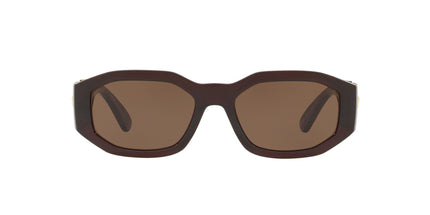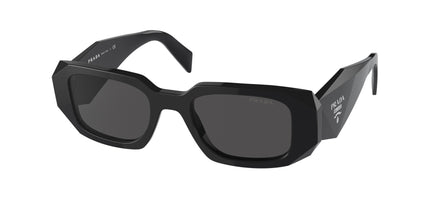Astigmatism - How Can Glasses Help?

Innumerable people are now facing the eye condition astigmatism. This blurry condition requires a classy, stylish solution. Most people aren’t even aware of what this eye condition means and the symptoms that trigger this condition.
So, if you frequently have headaches and eye strain problems, you should get them checked. You may be diagnosed with astigmatism. This blog post will explain all about astigmatism and if you need glasses for it or not.
We will also explain if OTC reading glasses will suffice or not. So, let’s get started:
Astigmatism: What Is It?
Generally, the human eye focuses light uniformly at the back of the eye - on the cornea. As a result, healthy human eyes can see clearly. Astigmatism causes blurred vision due to uneven cornea curvature.

This prevents light rays from being properly refracted. The incoming light in the eye gets broken into multiple focus points, causing blurriness, distortion, and other symptoms. Astigmatism is usually inherited.
However, it can also result from an eye injury, eye surgery, or eye disease. This eye condition develops late in life and worsens as you age. Treating astigmatism with a doctor’s help and care using a stylish pair of affordable glasses is a great option.
Can Glasses Affect Your Glasses Prescription?
If this is your first time getting prescription glasses, you may not understand what all the columns and numbers mean. On our website, you will find out more on our blog about how to read a prescription for glasses.
CYL and Axis are two components that describe astigmatism. CYL stands for “cylinder” and refers to cylindrical lenses rather than spherical ones. These cylindrical glasses will counteract the uneven shape of the cornea.
The column with this number defines the lens power your glasses will require. In contrast, the axis defines the degrees (between 1 to 180), known as the orientation of your eye condition. The orientation degrees define what type of astigmatism correction you will require for your glasses.
When Do You Need Eyeglasses?
Needing eyeglasses depends on the severity of astigmatism and how clear or blurry your vision is. Visit an optometrist as soon as possible if you frequently experience irritating distortion or blurry vision.
Your optometrist’s recommendation and your comfort are far more critical than mapping the strength of the prescription given to you. Your eye exam will give you the experience of getting corrected vision and the possibilities of how your glasses will do wonders for you.
Some additional symptoms you should consider are trouble seeing at night, regular headaches caused by eye strain, and blurry vision, irrespective of the distance.
How Can Glasses Help With Astigmatism?
Glasses work best to correct the effects caused by an irregular cornea. Your prescription will have the corrective cylindrical lenses’ measurements that will counteract the effects of astigmatism on you.
Light will refract clearly in your eyes and will clear your eyesight considerably. You may simply want to grab reading eyeglasses, but they won’t be sufficient in aiding your astigmatism. OTC eyeglasses only help clear farsightedness or near-sightedness.
So, your symptoms may worsen over time. You will have to buy prescription glasses that adjust correctly according to your astigmatism condition since they can be different for both eyes.
Which Types Of Eyeglasses Are Best For Astigmatism?
While shopping for astigmatism glasses, you should consider a few factors. When you shop for frames, consider the ones with a flat front, as they are a better option. This is because wraparound frames might cause visual distortions.
Depending on the strength of astigmatism, your lens material may differ. For moderate astigmatism, polycarbonate lenses are used. If your astigmatism is above +/-4.0 diopters, it’s best to go for high-index lenses (above or equal to 1.67).
These lenses will have a thin profile while offering you the vision correction you need. Since astigmatism can cause distortions and light irritation, it is necessary to add an anti-reflective coating to your glasses.
This will lessen the distracting glares and reflections falling on your eyes. In fact, these symptoms will be magnified if an anti-reflective coating isn’t added to the lenses, especially during night time.
Conclusion
Glasses can take time to adjust. You may even experience symptoms like headaches and dizziness while wearing glasses for the first few times. These side effects should diminish within a few days, allowing you to enjoy your new and improved vision. Remember to take extra care of your eyes and glasses. Astigmatism should be dealt with as soon as possible before it worsens the sight.















 Back to Blog Page
Back to Blog Page











